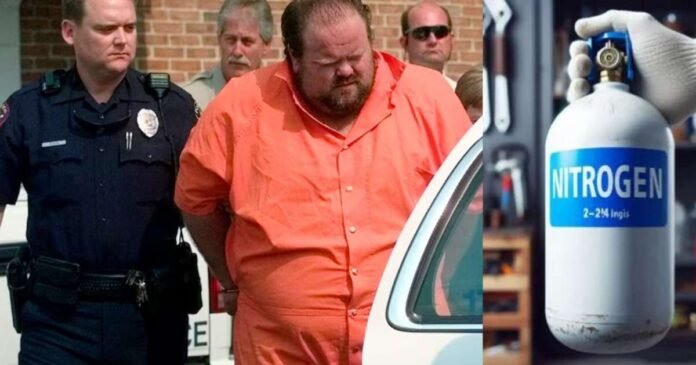Alabama is on the brink of carrying out a historic execution of Kenneth Eugene Smith using nitrogen gas this Thursday for his role in a 1988 murder-for-hire plot. Smith, who survived a previous attempt by lethal injection in 2022, faces uncertainty over the novel method, nitrogen hypoxia, which experts fear could inflict excessive pain during the execution.
The state’s execution protocol, marked with redactions citing security concerns, leaves crucial details in the dark, intensifying worries about the procedure. Despite efforts by Smith’s legal team to intervene, both the US Supreme Court and a federal appeals court rejected their pleas, emphasizing the state’s authority to proceed.
Alabama’s Attorney General, Steve Marshall, welcomed the high court’s dismissal of Smith’s appeal, characterizing it as an attempt to obstruct the state’s execution plans. However, critics remain unconvinced, pointing to Alabama’s recent execution setbacks, including instances labeled as “botched” in 2022, where executions deviated from the planned protocol.
Smith’s spiritual advisor, Rev. Jeff Hood, expressed deep concern over the secretive nature of the execution process, labeling it as “lunacy.” Despite the state’s confidence in a smooth execution, the use of nitrogen gas raises questions, especially considering the challenges Alabama faced in executing lethal injections.
Smith’s case revolves around the murder of Elizabeth Sennett in 1988, orchestrated by Charles Sennett as part of an insurance scheme due to his extramarital affair. Charles recruited individuals, including Smith, promising payment for the murder staged as a burglary. After the crime, Smith took a VCR player from the Sennett home, which later became a crucial piece of evidence leading to his arrest.
Initially sentenced to death, Smith’s case saw twists, with an appeals court overturning the conviction and ordering a new trial. In the retrial, the jury voted overwhelmingly for a life sentence without parole, but the judge’s decision, known as judicial override, ultimately sentenced Smith to death – a practice now repealed in Alabama.
What is Nitrogen Hypoxia?
Nitrogen hypoxia is a proposed method of execution where the inmate is made to breathe only nitrogen, instead of the usual oxygen, leading to their body not working properly and causing them to die. This is different from usual execution methods that use harmful substances. People are discussing how well this method works, if it causes pain, and if it’s the right thing to do. Exactly how nitrogen hypoxia would happen and what effects it has on the body are still being talked about and looked into.
Why is this New Method Being Introduced?
States introduced the idea of nitrogen hypoxia as an alternative execution method due to challenges in acquiring lethal injection drugs and the continuous legal disputes regarding the humaneness of lethal injection. Advocates suggested that nitrogen hypoxia could offer a more straightforward and humane approach to executions. Then-Senator Trip Pittman, a Republican who sponsored the 2018 legislation, envisioned it working similarly to how airplane passengers lose consciousness during a depressurization event.
As the state prepares for the unprecedented use of nitrogen gas, concerns persist regarding the execution’s transparency and potential complications, echoing calls for a closer examination of the methods employed in capital punishment.
